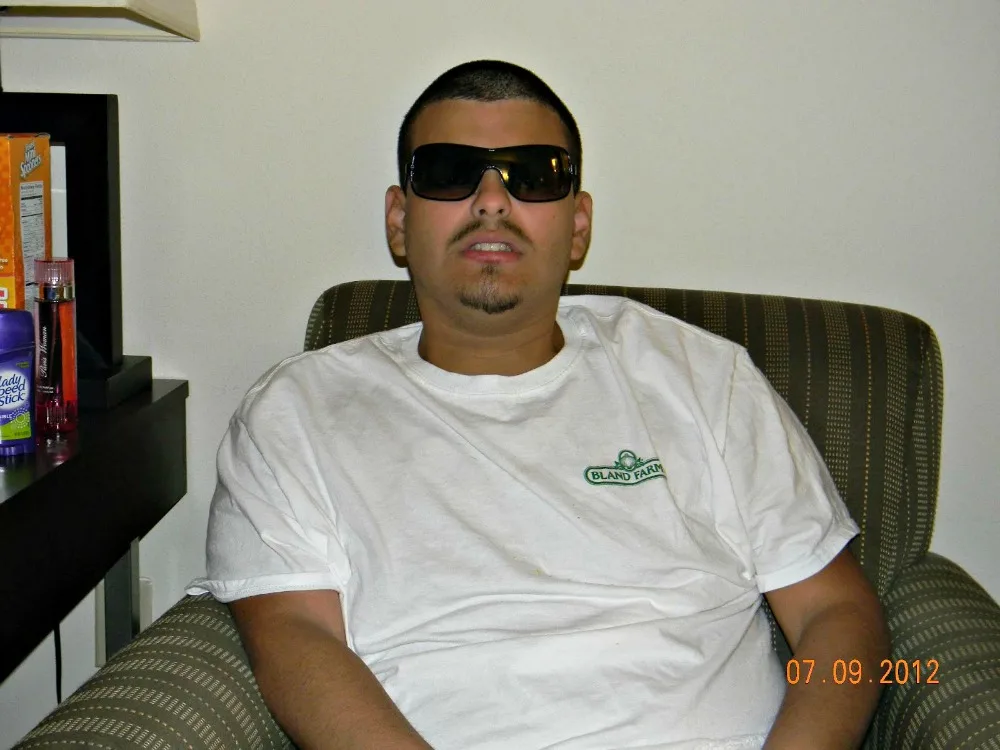Most parents dream of having a perfect child, but what happens when your child is anything but perfect? What if your child has autism? It can be challenging to know where to turn for advice and support, but this isn’t something you have to face alone. There are many ways you can raise an autistic child, and with patience and perseverance, you can help him, or she reaches their full potential.

I am the proud mom of an autistic child. My son, Devon, has the most beautiful smile and the warmest laugh.
He loves to hug, and he does like to flirt with the girls. If you look at my son, he looks like any other adult, except he isn’t.
Devon can’t hold a conversation with anyone. He doesn’t have dreams for his future or what he wants to be. He brightens the room with his laughter, and when I think I can’t go on, he gives me the strength I need.
I sometimes look at my friend’s children, and I feel a slight pain in my heart about the things he will never be able to do. But Devon has taught me so much. He has taught me that there is more beauty to life than I could ever have believed.
Devon is special to me and everyone in our family. He has taught me to never give up.
When I think I can’t go on anymore, his smile pushes me. I know that I can accomplish anything because of him.
Raising a child with autism has taught me a lot. I have learned to take each day as it comes and not to worry about the small things. We love Devon for who he is, and we don’t cry for what he isn’t.

Having a child with autism – before diagnosis
I knew something was wrong when Devon was about 1 1/2 years old when he stopped talking. Until then, he developed early.
Devon had rolled over, walked, and talked early. But when those magic words disappeared, I knew something was not right.
Like other parents, I kept telling myself, “he will start talking again.” But his magic words never returned. Yes, he vocalizes, but he doesn’t communicate with actual words.
Then the tantrums came, and these tantrums were not the regular terrible two’s. I mean, these were bad. Nothing would console him, and I know now that these were meltdowns.
At this time, Devon was doing things typical of autism, but I thought it was just another “phase” he was going through. I thought that on any given day, he would say all those words again. But that never happened.
Devon used to wake up at night with night terrors. That is when he did sleep.
These terrors were so bad that I would just sit there and cry because I didn’t know what to do for him. For many years, I lived on only 3 hours of sleep because Devon didn’t sleep. I was worn out.
When Devon turned 3, we put him in an early developmental class at our local school. We had to go in so they could meet with us to ensure this class was suitable for Devon.
The meltdown Devon had, throwing himself on the floor and crying, spoke louder than words. The teacher looked at me and knew that Devon needed to be in that class.
Devon was diagnosed with autism when he was 4 1/2 years old. I still remember that day like it was yesterday.
We had a meeting with his case manager from the school district. She told me that she thought Devon needed to be evaluated by a neurologist and referred us to one.

Finding out I have a child with autism.
The day finally came to go to our appointment, and that was the day our lives changed. The doctor did whatever test they did back then, sat us down, and said, “Devon is autistic.”
The doctor asked us if we knew what autism was. At that time, autism was hardly ever mentioned.
There was no such thing as Google. In those years, people with autism were not a part of mainstream society.
I remembered the movie Rain Man, so to answer her question, I said yes, I knew of autism but not much about it.
The doctor didn’t give us much faith that day. She only pointed out all the negative things about autism.
To top it all off, she told us that she didn’t think it would be in our best interest to have more children. She told us we shouldn’t have any more children because the next child might also come out with a “mental handicap.”
Unknown to the doctor, I was 2 months pregnant with my daughter, so when she said those words to me, my heart fell. I looked at her and said, “We are already expecting another child.” All she said to us was to go to our local library and find books on autism and read about it.
That was it. We walked out of there with all our dreams for our child in shambles.
All the dreams we had for him: playing football, his first girlfriend, the prom, graduating high school, going to college, getting married, and having children. Everything that I had always dreamed of for my child vanished with that one word-autism.
The medical field has come a long way in the treatment of autism. There are resources now that I didn’t have back then.
When I walked out of that doctor’s office that day, I walked out a different person. My love for my son never changed, but I did. I became stronger.
Devon’s father couldn’t live with the fact that Devon “wasn’t perfect.” Devon’s father couldn’t deal with the challenges and stress of autism, so he left, and we divorced. Some parents don’t have the desire to take care of a special-needs child.
I couldn’t just break down and feel sorry for myself. I had to be strong for my son and myself. Devon would need me to be strong. I needed to be his voice so he would be heard.
When Devon was a teenager, I finally heard my son say something I was longing for, the one simple word, “mommy.” I still become the happiest person when he calls me mommy.
I never thought I would hear him say that word again. I give credit for this miracle to his teachers and his stepfather.
His stepfather loves Devon as his own child. I never once thought about placing Devon in a home. I love my son with autism. He is mine and is perfect in every way.

Parenting a child with autism
It’s hard to describe the despair and grief that overwhelm you as a parent when you discover your child has been diagnosed with autism. You have many questions about why this happened and where to start.
This is common when you find out your child has autism.
Don’t let yourself get overwhelmed by the diagnosis. There are things that you can do to get through it and put yourself in a better place for the future.
Your child has so much potential, and it’s up to you as a parent to help your child reach their full potential. Living with an autistic child can be challenging. However, it is also a journey filled with beautiful experiences.
Take care of yourself physically, emotionally, and mentally. Ensure that you’re eating healthy and getting enough sleep.
This will help you manage stress better. If possible, go out with friends or family so that you have someone who can listen to your problems without judgment or criticism.
Accept that your life is different now, but that doesn’t mean it has to be negative. Even if your child has significant challenges, there are still many things that can be done for them.
So don’t give up hope!
There is no one-size-fits-all answer to the question of how to raise an autistic child. However, some general guiding principles can help parents create a supportive and nurturing environment for their children. First and foremost, it is important to accept your child for who they are.

What is autism?
Autism is a complex developmental disability that usually appears in the first three years of life and affects a person’s ability to communicate and interact with others.
Autism is defined by a specific set of behaviors and is a “spectrum disorder” that affects individuals differently and to varying degrees. Autism has no single known cause.
Autism is treatable. Children do not “outgrow” autism, but studies show that early diagnosis and intervention lead to significantly improved outcomes.
Finding out that your child has autism can be a challenging and confusing time. You want what’s best for your child, and if the diagnosis is relatively new, you’re likely wondering how you can parent a child on the autism spectrum.
Thanks to social media and other platforms, the stigma surrounding mental disorders is slowly fading away. More people are speaking out and raising awareness and support for those on the autism spectrum.
Many autistic kids are doing well because more people know about it, and treatment has improved.
Parents of children with autism
When something affects about 1 in 54 children in the United States, it can be a relief to know that there are other parents out there who are raising an autistic child. Parenting a child with autism has its ups and downs, but it’s an incredible journey you will take with your child throughout their life.
A great way to navigate this new diagnosis is to talk with other parents who have a child with an autism spectrum disorder. Although every child with autism is unique, it helps to have a support group to talk about your thoughts and feelings and ask questions.
Find a support system to lean on. This will help you feel less isolated throughout your new journey.
Find help from local or online groups that understand what you’re going through. Your feelings are valid, and many other parents have experienced similar things.
Find someone who will listen to you, be supportive and allow you to cry when needed.
You should also begin educating yourself about your child’s neurodiversity. Attend all doctor appointments with them and find online resources and books to learn more about your child’s diagnosis.
Children with autism often have unique talents and capabilities. Make sure to celebrate them! Many accomplished individuals, especially in the entertainment industry, have autism and have been able to succeed because their supporters celebrated their differences.
Focus on your child’s strengths and find ways to nurture them.

Life with an autistic child
Children and adults with autism do best when they have schedules and routines. Be consistent with their care and treatment and set up a daily routine for them to follow.
This includes having regular times for meals, bedtime, therapy, appointments, and school. Keep any disruptions to their routine to a minimum and tell your child in advance of any changes to the schedule.
Although there is no “autism treatment,” there are ways to help symptoms and regulate your child’s behaviors. For example, some neurodiverse children have trouble communicating and need speech therapy to help them understand different non-verbal cues and gestures.
Physical therapy is also frequently used as a resource for helping an autistic child.
Other children with autism may need medication to help them get through the day. No two children have the same treatment plan, so ensure the treatment plan is tailored to your child.
Take your child to everyday activities. Autistic children may be unpredictable at times.
Parents who have a child newly diagnosed with autism may be wary of taking them out of the house. However, the more you take them on everyday activities, like going to the grocery store or the park, the more exposure they’ll get so that they can get used to the world around them.
Finally, take time for yourself. You may be urged to spend all your time and energy on your child’s care.
If you fail to take time for yourself, you’ll get burned out quickly and may struggle to be the parent you want to be. It will take time to get into a routine and find the right therapy and medication for your child but keeping your own body and mind in shape can help you better face any challenges.
Embrace your child and the new journey you will be taking with them. Finding balance in your life as a parent of a child with autism will take some time.
Practice self-care and accept your child for the beautiful individual they are!
How to Raise an Autistic Child is a question many parents ask themselves. The answer is not always an easy one, but it is possible to raise an autistic child successfully.
Most people think that having an autistic child means a life of complex challenges, but it can also be a life of great love and joy.
Sign Up Below For Your Free Autism Check List!
At home with an autistic child
Your home is your sanctuary, where you can relax and be yourself. For your child with autism, that’s doubly true.
Children with autism thrive on structure and predictability. Home is the place that meets those needs best.
However, it does take some effort to create a home that’s both safe and comfortable for your child. While each autistic child has his or her own unique needs, there are a few things parents can consider when assessing their home environment.
Nearly half of all children with autism are prone to wandering. This behavior is particularly risky for kids on the spectrum because, as AWAARE notes, they often struggle to understand basic safety rules.
If a child wanders away from home and into a pond or busy street, it could quickly end in tragedy. Even if your child isn’t harmed, she may be unable to tell a neighbor or first responder her address or phone number to get back home.
Instituting a few safety measures can save parents enormous stress when it comes to a wandering child. As a first step, install a security system that sounds an alarm whenever an outside door or window is opened.
This way, you’ll know the moment your child has left the house, even if you’re busy in another room. Second, understand that no system is foolproof.
Equip your child with a wearable GPS device or other ID so they can identify themselves and find their way home. Always be aware of your child’s symptoms and pay attention to them.
While roaming is dangerous, there are potential safety hazards inside your home too. It can be challenging to teach neurodiverse kids the same safety rules that other kids pick up quickly, like not touching a hot stove or getting into the medicine cabinet.
Keep dangerous items locked up safely. It is wise to keep an organized and tidy home for your autistic child to navigate and feel comfortable in.
Another option is to create a dedicated space where your child can retreat when she needs a sensory break. For example, you can set up a quiet space with simple furnishings and decorations, clear organization, muted colors, and dimmable lighting, and stock it with your child’s favorite sensory items.
Finally, make sure the behavior of you and your family members is a source of comfort, not stress, for your child. Family life is essential for raising children with autism.
Keep consistent family routines for meals, sleeping, and other daily tasks, and try to keep the mood at home warm and positive as much as possible.
When you take measures to make your house a safe place for your autistic child, you’re creating a better home for everyone in the family. While these guidelines won’t apply to every child with autism, they can serve as food for thought as you assess your home’s safety and sensory-friendliness.

A normal life with an autistic child- Success at school
The social aspects, constant changes, and the stimulus at school can sometimes be overwhelming for autistic children with special needs. However, there are measures you can take that will make school a more pleasant place for your son or daughter.
Make sure you adequately communicate with your child’s teachers and school staff. This way, they will understand your child’s unique characteristics, habits, and preferred environment.
Then the school can provide your child with the accommodation they need.
The next thing is to communicate with your autistic child daily after school. If your daughter, who has autism, comes home distressed from her day, let her talk with you—or communicate however she chooses—and make sure you listen and watch carefully.
As an autistic kid, she may have difficulty expressing or understanding her emotions.
A feelings chart is a helpful tool to use for autistic children to identify and communicate their feelings. If your autistic child comes home from school distressed, use the feelings chart to help your child communicate about their school day.
You can involve the whole family in the feelings chart, so your autistic child feels like this is a task everyone participates in, not just her. Discuss briefly with her where she’s at on the chart and where she wishes to be.
You can also discuss methods that will help her achieve her desired feelings.
Children with autism can do amazing things, especially if they have a source of motivation. Help your child stay motivated in school by instilling the idea that knowledge is power.
As a parent, you can help your autistic child stay motivated by providing support and incentives.
Living with an autistic child
Some people have told me they don’t think they could do what I do. This is my son.
I carried him for 9 months, and we still share many beautiful moments together that I wouldn’t trade for anything. He is my reason to smile, especially when I see him smile.
His smile lights up the room and my heart. I could not imagine my life without him. I might not be able to do what other parents do, and I accept that.
So, while other children go on to live “normal lives,” Devon will live his “normal life” with us. As parents of a child with autism, we are happy about that.
